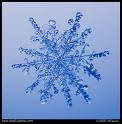Back in the day, I really got into the whole Celestine Prophesy/energy vampire thing. Since then, my views have changed significantly, and I think the truth is a lot simpler than this idea of people sucking the life out of you.
Put simply, you do it to yourself.
Let me explain what I mean. People in this world have created this thing I call the Scarcity Myth, the general idea of not-enough-ness in the world. We have this subconscious belief that everything worth getting or having is scarce: money, love, time, good ideas, energy, happiness, and so on. I personally believe that our thoughts create our experience, so therefore if we believe these things are scarce, we experience that.
But where does this myth come from? What is the root cause of this assumption? IMHO, I think it comes from the Western monotheistic (WM) idea of a God whose love is conditional. Put simply, the greatest feeling of all is Love, and the greatest Love of all is God's Love. But, according to WM, God requires things from us in order to receive this perfect Love, namely proper worship and behavior. What worship and which behaviors are proper? Depends on who you ask: surrender, the Five Pillars, the Ten Commandments, what have you. If God does not receive what He wants, or worse, receives the wrong thing, His Love is withheld, and even punishment is meted out.
Each monotheist sect believes it has discovered the right way to placate and please this demanding God, and that all others have it completely wrong. Between these two, the capricious nature of the WM God and the confusion created by so many conflicting ideas about what the WM God really wants, we subconsciously believe that the Love of God is scarce and only given to those who are "worthy". The extrapolation from here is simple; if God's Love is scarce, all other good things must also be. If all good things are scarce, then we must compete, horde, and fight over all good things in order to make sure we have "enough".
So what does this have to do with psychic vampires? All of these ideas of scarcity and competition have created in us the belief that everyone else is out to "get" everything that brings us joy. When a person first discovers the wonders of spirituality and personal energy, they have yet to unlearn this scarcity mindset. They get this incredible jolt of inner energy which, while it comes from within and from the truth of our connection to All That IS, they still think comes from some "outside" source. If the energy comes from an outside source, it must be both scarce and losable. Which means others can "take" it from us, and thus is born these ideas of psychic vampires, demons, evil spirits, and all these other dramas. In truth, all there is are people who have yet to unlearn their reflexive belief in the scarcity of God's Love.
JCS

